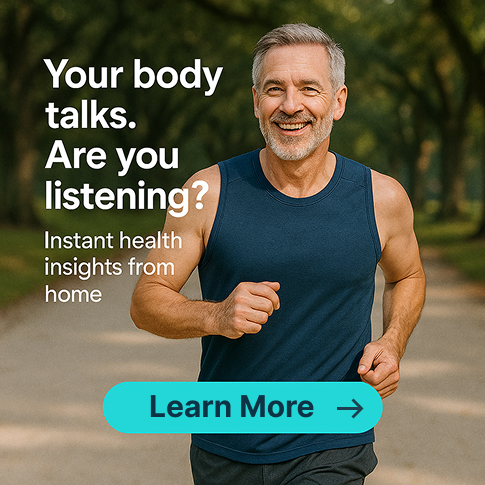Table of Contents
Overview of Biometric Screening and Its Purpose
Biometric screening has emerged as an essential component of workplace wellness programs, with employers increasingly recognizing its significance in promoting employee health. Defined by the Centers for Disease Control and Prevention (CDC), a biometric screening is the measurement of physical characteristics such as height, weight, body mass index (BMI), blood pressure, blood cholesterol, and blood glucose that can be taken at the work site and used as part of a workplace health assessment. This clinical evaluation serves as a baseline to monitor and evaluate changes in an employee’s health over time. The primary purpose of biometric screening is to identify potential health risks early, allowing for timely interventions that can prevent the development of chronic health conditions.
According to a 2022 Employer Health and Benefits survey, biometric screenings are second only to flu clinics as the most popular worksite wellness tool, with 24% of small firms and 45% of large firms offering them. The rising trend in biometric screenings includes incentives from employers to encourage participation, as early identification of health risks can lead to better health outcomes and reduced healthcare costs. With up to 50% of factors determining our health attributed to lifestyle and healthy behaviors, these screenings can provide critical insights into employees’ health and promote necessary behavioral changes.
Key Measurements Taken During a Biometric Screening
The biometric screening process is relatively quick and involves several key measurements. Typically, these include:
- Height and Weight: Basic measurements to calculate BMI, which is a vital indicator of body fat.
- Body Mass Index (BMI): This calculation helps categorize individuals as underweight, normal weight, overweight, or obese. A high BMI is often associated with increased risk for conditions like diabetes and heart disease.
- Blood Pressure: Blood pressure readings, consisting of systolic and diastolic values, are critical for assessing cardiovascular health.
- Blood Cholesterol Levels: This measurement includes total cholesterol, LDL (low-density lipoprotein, or “bad” cholesterol), HDL (high-density lipoprotein, or “good” cholesterol), and triglycerides. High cholesterol levels can lead to heart disease and other cardiovascular problems.
- Blood Glucose Levels: Fasting blood glucose levels help identify prediabetes or diabetes, which can otherwise go unnoticed until serious complications arise.
The results from these measurements offer a snapshot of an individual’s health, allowing for proactive management of potential health risks. The screening may also include lifestyle questionnaires to provide context to the results, further enhancing the understanding of health risks and necessary interventions.
| Measurement | Purpose |
|---|---|
| Height and Weight | Determine BMI |
| Body Mass Index (BMI) | Assess body fat and categorize weight status |
| Blood Pressure | Evaluate cardiovascular health |
| Blood Cholesterol Levels | Identify risks for heart disease |
| Blood Glucose Levels | Screen for diabetes and prediabetes |
The Importance of Biometric Screening in Workplace Wellness
Biometric screenings are an integral part of workplace wellness initiatives, offering significant benefits for both employees and employers. These screenings not only help identify health risks early but also promote a culture of health within the organization. With research indicating that up to 75% of healthcare costs stem from preventable chronic conditions, employers are increasingly leveraging biometric screenings to reduce healthcare spending.
Early detection of health issues through biometric screenings can lead to improved employee morale and productivity. Employees who are aware of their health risks are more likely to engage in healthy behaviors, leading to reduced absenteeism and healthcare costs. Furthermore, when employers demonstrate a commitment to employee health through such screenings, it fosters a positive workplace environment, leading to increased job satisfaction and retention rates.
The data supports that when employers provide financial incentives for participation in biometric screenings, participation rates can increase significantly. For instance, a 2015 study by the Employee Benefit Research Institute (EBRI) found that financial incentives led to a 55% increase in participation. This indicates that employers can effectively encourage engagement in health programs, ultimately benefiting the overall health of the workforce.
Preparing for Your Biometric Screening: Essential Tips
Preparation for a biometric screening is crucial to ensure accurate results. Employees should follow specific guidelines leading up to the screening, which typically includes fasting for 8 to 12 hours prior to the test. Here are essential tips for preparation:
- Fasting: Most biometric screenings require fasting, during which individuals should avoid all foods and drinks except for water, black coffee, or tea. This fasting period helps ensure accurate blood glucose and cholesterol readings.
- Hydration: Staying well-hydrated is important, as it facilitates easier blood draws. Employees should drink plenty of water during the fasting period.
- Clothing: Wear comfortable clothing that allows easy access for blood pressure measurement and blood draws. Loose-fitting sleeves can make the process quicker and more convenient.
- Medication: Employees should continue taking prescribed medications unless instructed otherwise by their employer or the screening provider. If there are any concerns, it is best to consult with the healthcare professional conducting the screening.
- Avoid Exercise: It is recommended to refrain from vigorous exercise for at least 12 hours before the screening, as physical activity can temporarily alter blood pressure and glucose levels.
By adhering to these preparation guidelines, employees can help ensure they receive the most accurate and beneficial results from their biometric screening.
Benefits of Biometric Screening for Employees and Employers
Biometric screenings offer numerous advantages that extend beyond basic health assessments. For employees, the benefits include:
- Early Detection of Health Issues: Biometric screenings can identify potential health conditions early, allowing for timely intervention and management of chronic diseases.
- Increased Awareness: These screenings provide employees with valuable insights into their health status, encouraging them to make informed decisions about their lifestyle choices.
- Access to Health Resources: Many employers provide follow-up programs or resources based on screening results, such as nutrition counseling, fitness programs, or stress management workshops.
For employers, the advantages of biometric screenings are equally compelling:
- Reduced Healthcare Costs: By identifying health risks early, employers can help prevent more serious health issues that lead to increased healthcare spending.
- Improved Employee Productivity: Healthier employees tend to be more productive and engaged, contributing positively to the overall performance of the organization.
- Enhanced Employee Morale: Showing that an employer cares about employee health can improve morale and job satisfaction, leading to lower turnover rates.
In summary, biometric screenings serve as a vital tool in the management of employee health and wellness, benefiting both individuals and organizations alike.
FAQ
What is a biometric screening?
A biometric screening is a clinical evaluation that measures physical characteristics such as height, weight, BMI, blood pressure, blood cholesterol, and blood glucose levels. It helps identify potential health risks and monitor changes in health over time.
How long does a biometric screening take?
A typical biometric screening takes about 15 to 20 minutes. However, the time may vary depending on the number of tests conducted and the initial paperwork required.
Do I need to fast before a biometric screening?
Yes, most biometric screenings require fasting for 8 to 12 hours prior to the test to ensure accurate blood glucose and cholesterol readings.
Are biometric screenings mandatory?
Participation in biometric screenings is usually voluntary. However, some employers may offer incentives or require screenings as part of their health insurance policy.
What happens to my health information after the screening?
Your health information is protected under the Health Insurance Portability and Accountability Act (HIPAA), meaning it cannot be disclosed without your authorization.
References
- What Does a Biometric Screening Measure? Retrieved from https://www.passporthealthusa.com/employer-solutions/blog/2019-1-what-does-a-biometric-screening-measure/
- Biometric Screening: What Is It and What’s Tested? Retrieved from https://www.healthline.com/health/what-to-know-about-a-biometric-screening
- Why a biometric screening is essential. Retrieved from https://www.labcorp.com/why-biometric-screening-essential
- Biometric Screenings
- Biometric screenings. Retrieved from https://www.questdiagnostics.com/business-solutions/employers/population-health/biometric-screening
- What is Biometric Screening & What Does It Measure? Retrieved from https://securityjournalamericas.com/biometric-screening/










